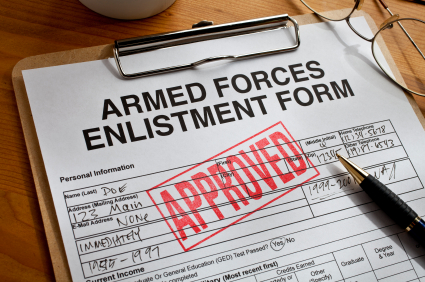 If you haven’t been paying attention to the cuts being proposed to slash the federal deficit, now is a good time to tune in.
If you haven’t been paying attention to the cuts being proposed to slash the federal deficit, now is a good time to tune in.
Benefits for military retirees are on the cutting block and they will affect all retirees, including currently retired folks, not just those who retire in future years.
The Army Times reported last week that the Congressional Budget Office has proposed 103 points to reduce the deficit. Among those are controversial cuts to the military. While the office puts together this report every two years, and usually the suggestions are pushed aside, this year, money has to be cut. These options, while highly unpopular among constituents, would slice huge chunks of spending off the federal budget.
Their suggestions:
- Cap military raises at 0.5 percent less than average private-sector increases beginning January 2015. The cap would remain in effect through 2023, saving the government $24.9 billion.
- Current retirement pay is calculated, in part, on the averageh basic pay over a service member’s three highest earning years in uniform. The CBO suggests calculating it based on five years of pay would save the government $2.1 billion and lower the lifetime value of military retired pay by 3 percent. That effect is suggested to take place with military members who retire on Jan. 1, 2015 and after.
- The CBO also suggested taking away concurrent pay from all current veterans. The pay allows disabled military retirees to receive full military retired pay and veterans’ disability. The move would slash monthly income for 420,000 veterans and save the government $108 billion over 10 years.
- The government could save another $15.3 billion over ten years if veterans were labeled as ineligible for unemployment pay from Social Security because of combat injuries. Currently veterans whose disabilities are rated between 60 and 90 percent may be eligible for unemployment benefits. CBO suggests making them ineligible for this benefit until they reach age 65.
- Finally, CBO suggests making retirees under age 65, and their families, ineligible for Tricare Prime healthcare coverage until they are age 65, a move that would save the government $75.4 billion over 10 years. The department also suggests raising Tricare for Life fees for older veterans (age 65 and above) which will save $21 billion over 10 years.
There is no doubt that our government deficit is out of control. Every dollar spent is being scrutinized. But some of the suggestions above are about more than cutting the bottom line, they will affect the quality of life for our nation’s injured veterans.
Many of these moves will leave veterans and their families without health insurance or income. The most injured veterans, those who have lost limbs in combat or suffered other serious injuries, will have their monthly incomes cut by more than half. If they cannot work, what will happen to them and their families?
Now is the time to let Washington know that these types of sweeping cuts are unacceptable. We as a nation cannot turn our backs on veterans and leave them without the healthcare or stipends they were promised when they enlisted and gave their lives over to the service of the nation.
Call your congressman. Let them know service members and their families are paying attention and we don’t like the negotiations we are seeing.


 It is the end of my husband's career and I feel more like a historian than a spouse.
It is the end of my husband's career and I feel more like a historian than a spouse. Effective Aug. 1, all service members must serve four more years before they are eligible to transfer benefits of the Post-9/11 G.I. Bill to their spouse or children.
Effective Aug. 1, all service members must serve four more years before they are eligible to transfer benefits of the Post-9/11 G.I. Bill to their spouse or children. That last day in the military is coming on fast and furious. And some of you don’t have a job. Or a place to live.
That last day in the military is coming on fast and furious. And some of you don’t have a job. Or a place to live. I hate white walls.
I hate white walls. Are you being medically retired? Do you feel like you’re being tossed to the curb? Me too.
Are you being medically retired? Do you feel like you’re being tossed to the curb? Me too. I consider myself a fairly well-informed military spouse. I try to keep up with the news, both official and that of the blog-o-sphere. I attend regular FRG meetings and try not to embarrass my husband with specific policy questions, at all of them.
I consider myself a fairly well-informed military spouse. I try to keep up with the news, both official and that of the blog-o-sphere. I attend regular FRG meetings and try not to embarrass my husband with specific policy questions, at all of them.  I married my husband late in his Army career. He was an E-6 when we walked down the aisle and I had already built my own career and life.
I married my husband late in his Army career. He was an E-6 when we walked down the aisle and I had already built my own career and life.

